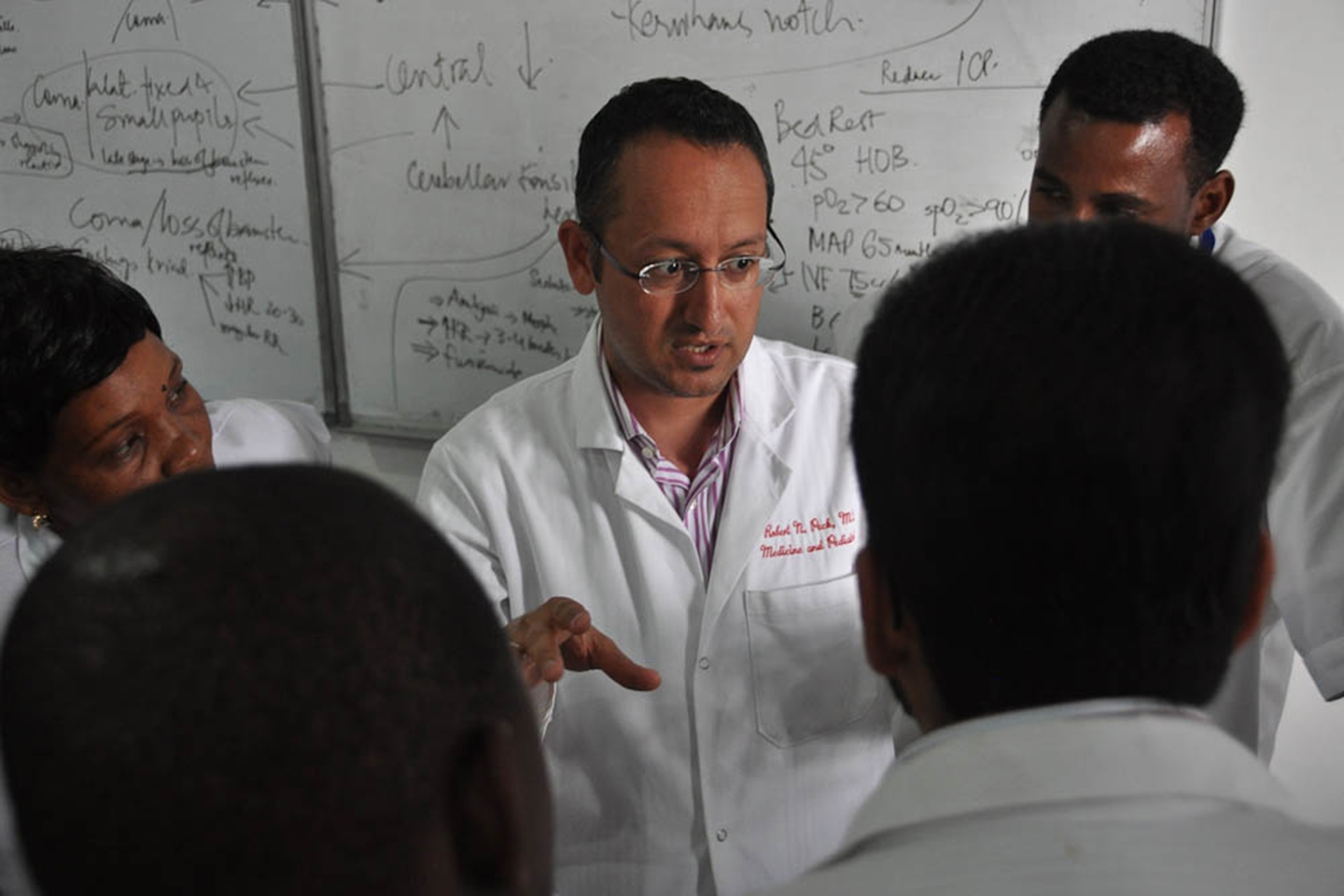Dr. Halinder Mangat, assistant professor of neurology and assistant professor of neurology in neurological surgery at Weill Cornell Medical College, traveled to Mwanza this spring as part of an exchange program between Weill Cornell Medical College and Weill Bugando University College of Health Sciences.
This exchange program strives to help train the next generation of Tanzanian physicians and expand the awareness and skills of Weill Cornell faculty, residents and students by working in a resource limited setting.
Weill Bugando's affiliated teaching hospital, Bugando Medical Centre, is a 900-bed referral hospital in Mwanza, the second largest city in Tanzania, with a patient load larger than it is designed for — yet one that accomplishes much, even with limited resources. All this is made possible by the rigorous teaching, hard work of the doctors and excellent clinical skills and acumen of the interns, residents and consultants.
In April, Dr. Mangat returned from a nearly two-week trip to Bugando Medical Centre, his second visit there in two years. He first visited Weill Bugando early last year to help in teaching clinical neurology. The medical residents at Bugando have little or no access to education in neurology due to a national shortage of neurologists in Tanzania. His experience led Dr. Mangat to return this year.

Dr. Hal Mangat with residents at Bugando Medical Centre during a visit in 2012
"My trips to Weill Bugando provide me with an opportunity to get back to basics in clinical medicine with no technology," he said. "It's a challenge, but one we frequently miss back in the U.S."
During his time in Mwanza, he spent most of his time teaching neurology to general medicine, emergency medicine and surgery residents. He hosted separate lectures for junior residents, teaching them neuroanatomy, physiology, clinical examination and neurological diagnosis. With the senior medical residents, he spent time discussing patients with challenging differential diagnoses. Bedside examination and teaching is fundamental to the care of patients due to limited neuroimaging possibilities, he said. CT scanning is seldom available and one must travel to Dar es Salaam to undergo an MRI, a trip that costs nearly 1 million Tanzanian Shillings (approx. $600), he added.
During his first trip last year, Dr. Mangat also joined rounds in Bugando Medical Centre's intensive care unit with Dr. Robert Peck, assistant professor of pediatrics and assistant professor of medicine at Weill Cornell and assistant attending physician at NewYork-Presbyterian Hospital/Weill Cornell Medical Center.
In the ICU, Dr. Mangat saw several sick patients. These included four patients with tetanus, an infection of the nervous system by the potentially deadly bacteria Clostridium tetani. The compliance with vaccination and boosters for tetanus is lower in Tanzania compared to the United States, and due to lifestyle and work related injuries, there's a greater incidence of tetanus. Yet, even with the limited resources the ICU has, those four patients not only survived, but also did well and were discharged from the unit. Theirs was a good ending, unlike for many others, he said. Tetanus still carries an extremely high mortality that exceeds 40 percent there.
While he has practiced medicine in settings similar to Bugando Medical Centre before, what impressed Dr. Mangat the most was the resourcefulness and resiliency of his counterparts in Tanzania and the priceless efforts and dedication of the Cornell faculty members based in Mwanza.
"Dr. Mangat's lectures and training received rave reviews," said Dr. Peck. "His connection with the residents made his teaching particularly effective and his trip a wonderful success."
Dr. Mangat plans on visiting Mwanza once a year to continue his efforts.

